The bloody legacy of Henry Kissinger
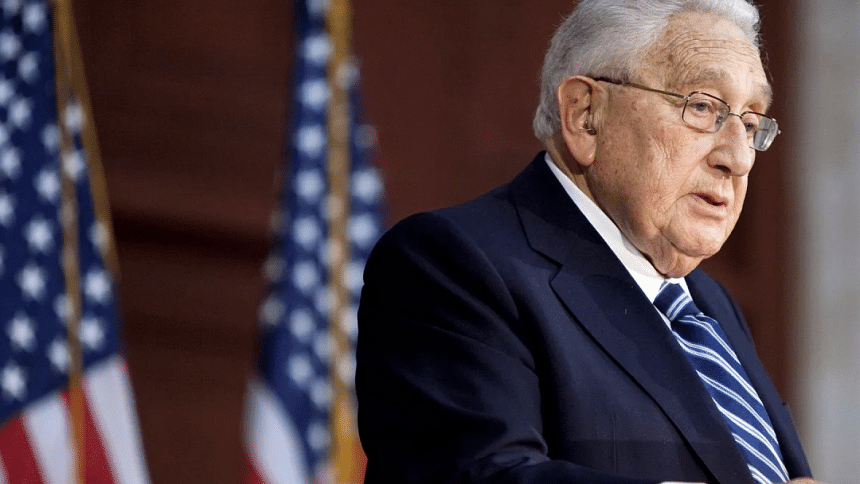
Henry Kissinger, a controversial but most influential geopolitical strategist in American history, turned 100 on May 27. Over the last few days, many articles have labelled him as "crooked," "war criminal" or plain "evil." Some also agree that despite all these, he remains an influential thinker in geopolitics who has deeply shaped US foreign policy. American policymakers still consult him on world affairs, such as the Ukraine war or the conflict with China. But Kissinger's legacy has indeed been bloody.
A brilliant political theorist with a PhD from Harvard, Kissinger rose to prominence in 1969-76 when, as the national security adviser, he led the US-Soviet Cold War negotiations. In 1971, he secretly travelled to Beijing to establish diplomatic relations with China that culminated in a visit by President Richard Nixon the following year. Kissinger was already seasoned in "realpolitik," or power politics, based on practical and material factors, rather than theoretical or ethical objectives.
People in Asia know Kissinger for his infamous roles in Bangladesh (1971, killing millions), Vietnam, Laos and Cambodia (where he prolonged the war and initiated carpet bombing that killed 150,000), and Indonesia (actively involved in Suharto's killing spree and attack on East Timor, killing at least 100,000). But his notoriety in Latin America is perhaps unparalleled.
It was Kissinger's plan for General Augusto Pinochet to overthrow (and kill) Chile's democratically elected President Salvador Allende in 1973 with extensive support from the CIA. The Nixon administration was actually willing to work with Allende. But Kissinger, in typical Machiavellian style, convinced the president to end him instead. After the coup, Pinochet continued his murderous repression with full American support, which Kissinger ensured.
With an assassin-like apathy, Kissinger repeated the same in 1976 after an Argentine coup overthrew President Isabel Perón, where the military rulers carried out atrocities on an even greater scale. In the so-called "Operation Condor" that followed, left-wingers were killed throughout Latin America, which some in the State Department pointed out, but Kissinger muffled all such voices. This was a repetition of the events in Bangladesh where Archer Blood was ostracised by the administration for sending reports of Pakistan's genocidal activities in Dhaka.
Each of these incidents is enough to raise charges of war crimes. Maverick journalist Christopher Hitchens made a strong case for it in The Trial of Henry Kissinger (2001). The book is an indisputable testament of how Kissinger's ambitions and ruthlessness directly resulted in widespread murders and indiscriminate slaughter in Indochina, Bangladesh, Chile, and East Timor. The Vietnam War (including conflicts in Laos and Cambodia) perhaps received the greatest publicity in the world press partly because of the huge public protests in many countries of the world, including the US. Kissinger knew well that it was an unwinnable war, but he still continued it, causing many deaths that could have been avoided. Later, he made sure before interviews that the book would not be mentioned and has always avoided questions about the Vietnam War.
However, Oriana Fallaci, the most feared political interviewer in the world, pinned him down on Vietnam, forcing him to acknowledge that it was indeed a useless war. Later, Kissinger admitted it was the most disastrous decision for him to agree to the interview in which he likened his foreign missions with Hollywood's lone cowboy image. He later tried to retract it, but failed, because Fallaci had recorded the entire conversation.
Kissinger, a cold-blooded Machiavellian and prophet of realpolitik, has no qualms about doing unpleasant things with unpleasant people. That explains how he could order carpet bombing in Cambodia, destruction of the economy in Chile ("make the economy scream"), or stopping grain shipment to Bangladesh (which he termed a "basket case" and wanted it to remain so). Born in Germany, Kissinger had direct exposure to Hitler's anti-Jew persecution. His family fled to London and then to New York in 1938 when he was 15. His biographer Walter Isaacson believes that his experiences during Nazi rules have influenced his character as an adult. Is it because of this that he often employed a ruthless policy towards other (weaker) nations?
During the Yom Kippur War between Israel and the Arabs in 1973, he allowed the Israeli army to advance before initiating any diplomatic efforts to stop the war. Later, the US replenished Israel's defence equipment with arms worth $2 billion when Golda Meir asked for $850 million only. Kissinger left his marks in every continent, almost in every country, with similar effects, such as large-scale civilian deaths, economic devastation, and perpetual shifting of the balance of power favouring an ally.
Ironically, Henry Kissinger was awarded the Nobel Peace Prize in 1973 for achieving peace in Indochina, jointly with Vietnam's General Le Duc Tho. The general turned it down because he didn't agree that peace was achieved, but Kissinger accepted it with "humility." The award remains among the most disputed in Nobel Prize history.
To many in the world, the name Kissinger is synonymous with duplicity.
Dr Sayeed Ahmed is a consulting engineer and the CEO of Bayside Analytix, a technology-focused strategy and management consulting organisation.

 For all latest news, follow The Daily Star's Google News channel.
For all latest news, follow The Daily Star's Google News channel. 

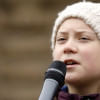
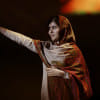
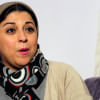
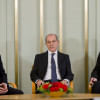
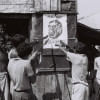


Comments